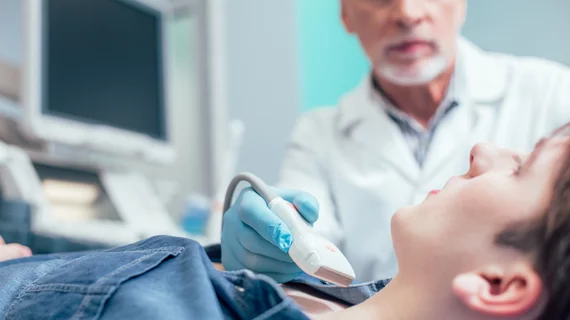FDA greenlights AI software that helps diagnose breast and thyroid cancers
"Game-changing" AI software that can assist in the diagnosis of breast and thyroid cancers has just received Food and Drug Administration clearance.
Koios Medical announced the clearance of its Koios DS Smart Ultrasound software in a press release today.
“This new FDA clearance means physicians are now poised to save tens of thousands of lives while freeing up precious time and resources that can be used more effectively and elevate quality of life,” CEO Chad McClennan said in the statement.
The AI software was built using data from 48 networks from around the world and is said to improve the overall accuracy, consistency and efficiency of physicians’ breast and thyroid cancer diagnoses.
In ultrasound alone, such cancers are diagnosed in approximately 375,000 people annually. Initial imaging results often lead to invasive biopsies to rule out malignancy. It is the hope of Koios Medical that their decision support software can help reduce the amount of unnecessary procedures by improving physician accuracy and reducing false positives.
“This novel software demonstrates that using AI for decision support physicians can make clinically meaningful shifts in performance improving interpretation efficacy and diagnostic performance, improving sensitivity and reducing false positives,” said Lev Barinov, PhD, vice president of Clinical Excellence at Koios.
The software is said to increase detection of thyroid cancer by 14% while also reducing false positive by 35%. It also reduces the time it takes to interpret exams by 24%, according to the statement.
You can view the full release here.

